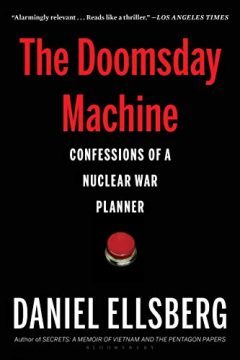Jean-Pierre Dupuy in Inference Review:
 DANIEL ELLSBERG is well known for releasing the Pentagon Papers to the New York Times and the Washington Post. Their publication led indirectly to the Watergate scandal and the downfall of Richard Nixon. Less well known is that in 1961, while working for the RAND Corporation as an economist specializing in rational choice theory, Ellsberg was seconded to the White House and the Pentagon to work alongside Robert McNamara drawing up plans for a nuclear war. This period is the subject of Ellsberg’s new book.
DANIEL ELLSBERG is well known for releasing the Pentagon Papers to the New York Times and the Washington Post. Their publication led indirectly to the Watergate scandal and the downfall of Richard Nixon. Less well known is that in 1961, while working for the RAND Corporation as an economist specializing in rational choice theory, Ellsberg was seconded to the White House and the Pentagon to work alongside Robert McNamara drawing up plans for a nuclear war. This period is the subject of Ellsberg’s new book.
When he left RAND in January 1970, Ellsberg made copies of all the documents in his safe, not only those pertaining to the Vietnam War.1 It seemed obvious to him that making known the horrifying risks involved in American nuclear strategy was much more important than denouncing the Vietnam scandal. Upon reflection, Ellsberg elected to release the Vietnam papers first. At the beginning of the book, he explains this decision in pragmatic terms, namely the urgency of ending an absurd war. But the remainder of the book suggests another, deeper reason: a feeling of helplessness. Despite the inherent dangers of nuclear weapons, it seemed to Ellsberg that the world remained “blind to apocalypse,” as Günther Anders has put it.2
The Doomsday Machine is a fantastic book, albeit one with an extraordinary omission: the index contains no entry for “deterrence,” a concept that is usually integral to any discussion about nuclear warfare.
More here.
